South Western Railway nationalised to ‘cut delays and cancellations’ – but first service is a bus
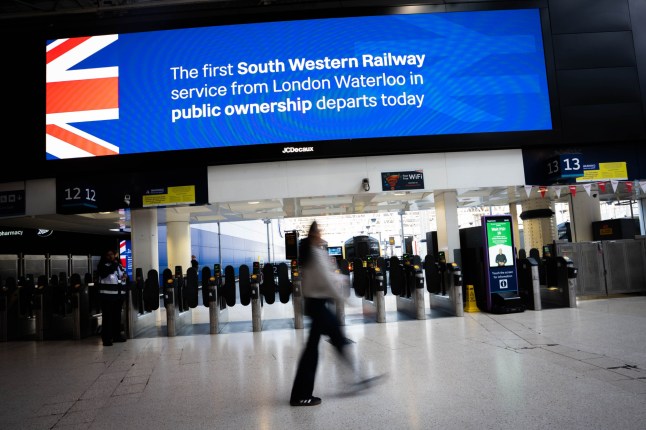

South Western Railway has become the first train operator to be brought into public ownership – with many more operators following soon.
Perhaps fittingly, the first train available for passengers to board after this landmark move was not actually a train, but a rail replacement bus.
The 05.36 service from Woking was affected by repairs taking place over the bank holiday.
So Transport Secretary Heidi Alexander waited to board the first renationalised train out of Waterloo to test out and celebrate the new system.
SWR, which runs services between London Waterloo and Weymouth, Bournemouth and Exeter, has been nationalised today as part of the government’s Great British Railways ‘shake-up’.
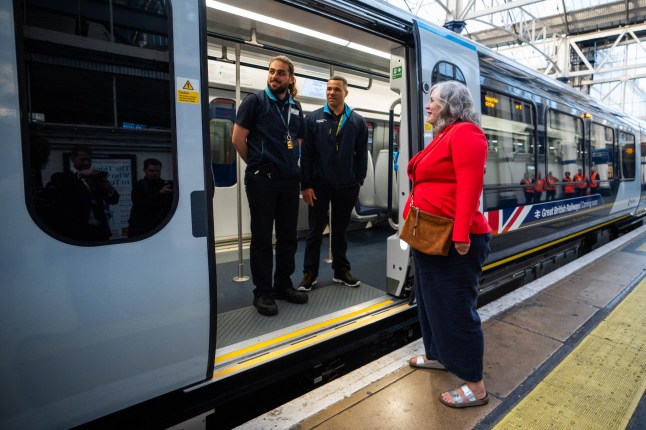
Ms Alexander said passengers could expect more punctual services, cleaner trains, better Wifi and more comfortable seats – and even the sandwich trolley being reintroduced on some trains under the Great British Railways branding (although not necessarily cheaper tickets).
The move was made possible after legislation was passed last year allowing the government to bring train firms back into public ownership when their contracts expire.
It comes after three decades of private ownership. One of Labour’s pledges during last year’s general election was to transform the railways.
Here is a roundup of what train nationalisation means for passengers.
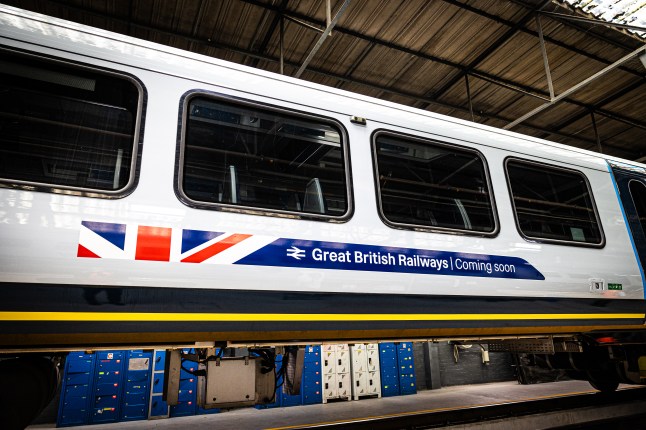
What are the Great British Railways?
The Great British Railways will be a government-owned body, which will own and operate train services and railway infrastructure in the UK.
It is expected to be up and running by 2027.
Once the company is set up, nationalised trains – like South Western Railway carriages – will display the Great British Railways sticker alongside the existing SWR branding.
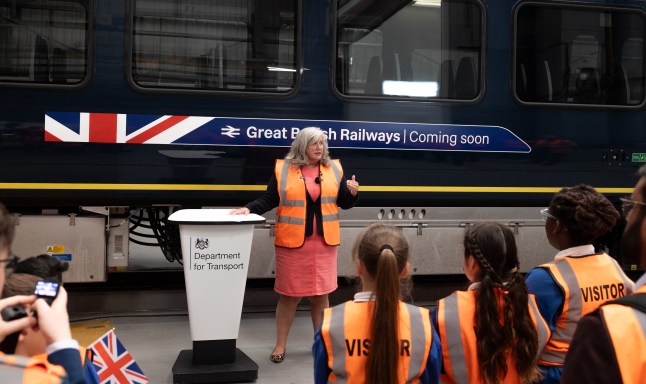
Will train tickets be cheaper?
So far, there has been no promise that train ticket prices will drop once the service is nationalised.
When asked when ticket prices will go down, Ms Alexander told Metro: ‘The real issue that I’ve got is that the operation running of the railways cost the taxpayer about £2 billion a year, and that’s before the billions every year we invest into the infrastructure, the tracks, the signalling.
‘I’d love to be able to tell your readers that I would be able to bring ticket prices down, but I can’t do that at the moment.
‘But I will strain every sinew to make sure that they get decent value for money, because people are having to pay a fair whack for train travel, so they need to know that what they are paying results in trains that arrive on time, lower levels of cancellation and a better passenger experience.’
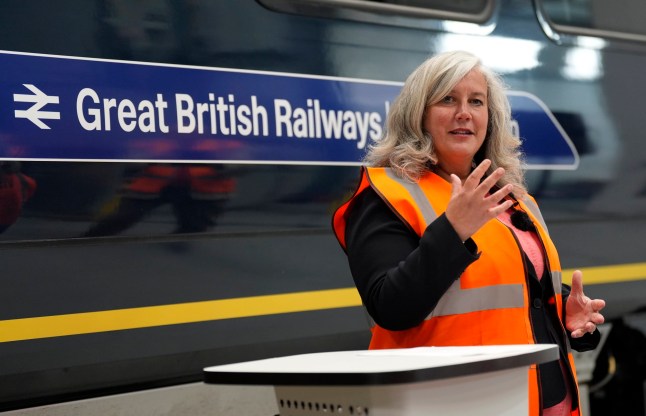
What are the benefits?
The focus for nationalisation has been on reducing cancellations and delays, which plague passengers across the UK.
Data from the watchdog Office of Rail and Road shows that around 62% of 1.8 million journeys between October and December last year.
Severe disruption was recorded on 34 days, when the cancellation percentage was 5% or higher.
Ms Alexander said better performance means ‘people standing on platforms knowing trains are going to arrive.’
‘It means fewer delays, it means a better overall passenger experience.
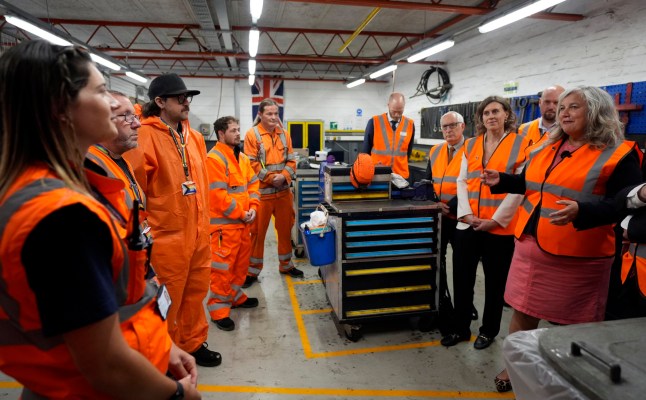
‘We want to see we tackle those real bugbears for people like poor Wifi connectivity on trains, uncomfortable seats. But it is going to take time because Great British Railways will not be set up until 2027,’ she said.
South Western Railway passengers are expected to see a new train fleet being rolled out as well after delays, which is a ‘really big priority for us,’ she added.
When asked about the axed food trolley service on some South Western Railways routes like the Exeter leg, Ms Alexander said she will ask the new managing director ‘what the possibilities are’ to bring it back.
When will my operator be up for it?
Not all of the train companies will be nationalised. Some, such as Northern, Southeastern and TransPennine, already are under public ownership.
Next up is the c2c, which will happen this summer, followed by Greater Anglia in the autumn.
Here is a full list of the operators and the dates when they will be nationalised.
What does the train nationalisation mean?
The nationalisation means some rail operators will be brought back into public ownership.
The move is also being called re-nationalisation as UK train companies were largely publicly owned until 1994, when they were taken over by privately owned companies.
Once an operator is re-nationalised, it will be eventually owned by the Great British Railways, a state-owned company.
These publicly owned companies will have to meet ‘rigorous performance standards,’ which will be ‘bespoke’ to each region, the Transport Secretary said.
This includes meeting ‘really high standards on punctuality, level of cancellations and passenger experience’ before operators will be allowed to ‘use the Great British Railways badge,’ she said.
The Transport Secretary said: ‘If you spoke to anyone using a South Western station today, they would want to see improvements, be that driving down cancellations to making sure we get punctuality up.
‘And some of the simple things like having a toilet is open at the station to making sure that the trains are really clean when they leave the depot.’
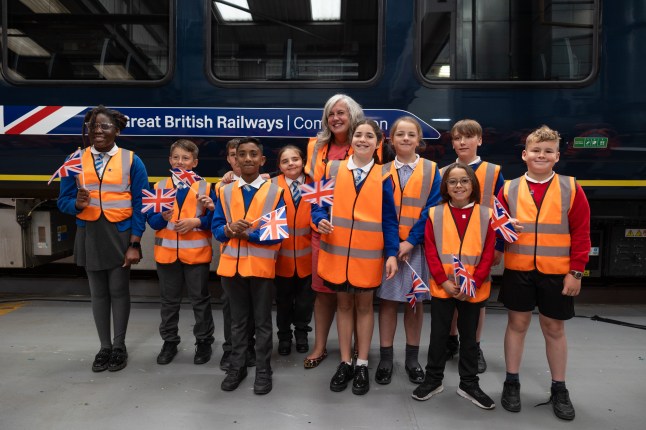
Why are trains being nationalised?
Bringing companies under public ownership was a Labour manifesto pledge last year.
The government said the re-nationalisation will save taxpayers £150 million a year in fees that would have been paid to private companies instead.
Speaking at the SWR depot, Ms Alexander said: ‘This is a new dawn for our railways.
‘Wave goodbye to 30 years of inefficiency, waster and passenger frustration, and we are going to step really confidently into the new future for the railways.
‘Of course, change is not going to happen overnight and we’ve always been clear that public ownership isn’t a silver bullet.
‘We are really firing the starting gun in that race for a truly 21st century railway. And that does mean focusing away from private profit and towards the public good. It means putting passengers first and getting the basics right.
‘Great British Railways isn’t here quite yet, but it is coming soon.
‘Passengers will start to notice a difference, not just fewer cancellations and simpler tickets, but a real fundamental cultural reset with one railway team working as one team, regional services earning the right to wear the Great British Railways badge. It will be a new organisation dedicated to public service.’
Get in touch with our news team by emailing us at webnews@metro.co.uk.
For more stories like this, check our news page.



